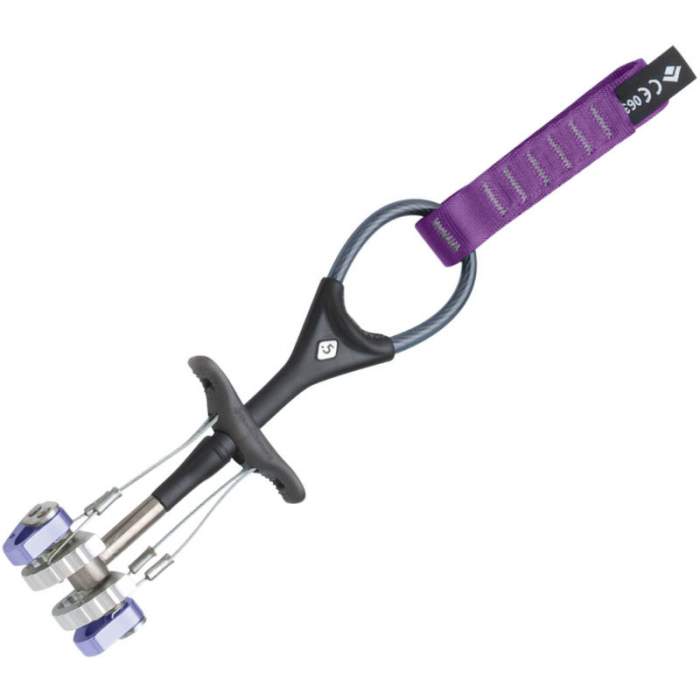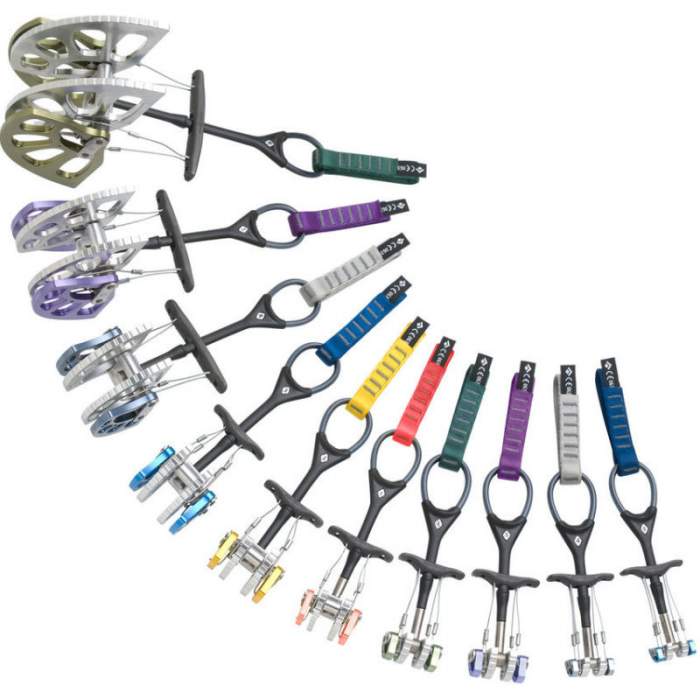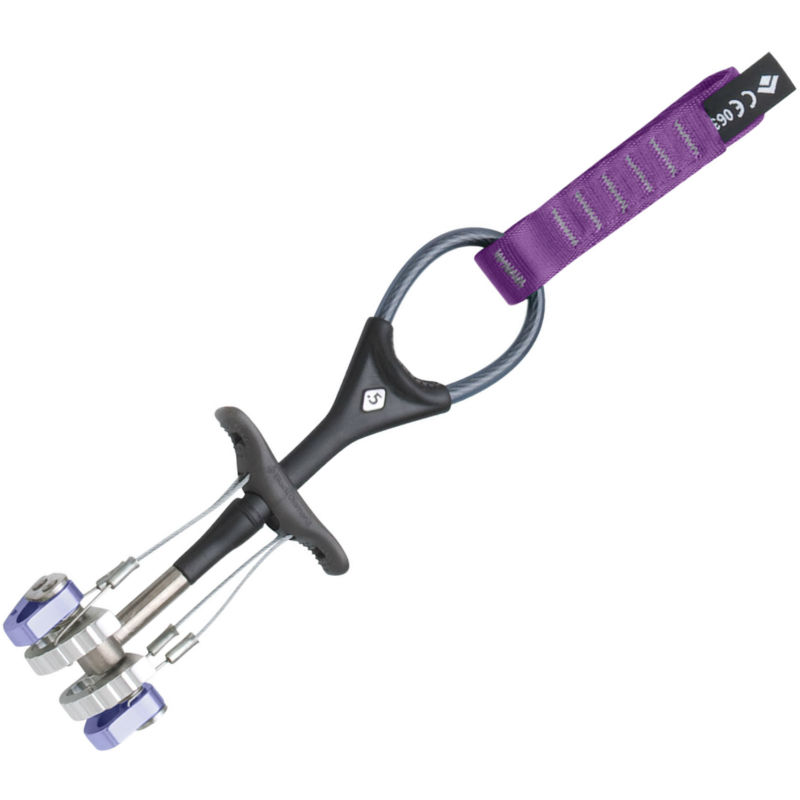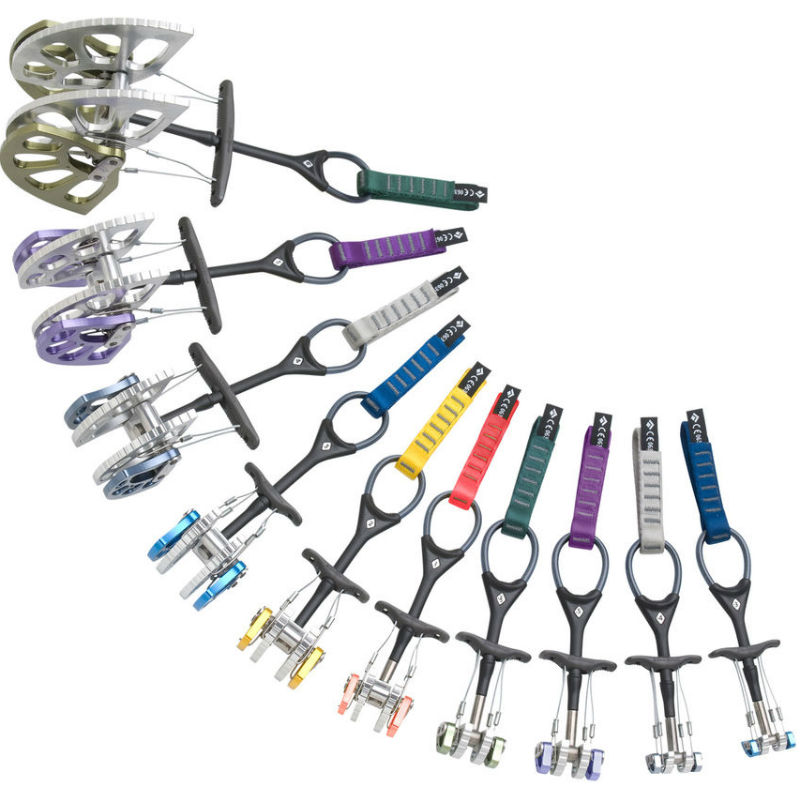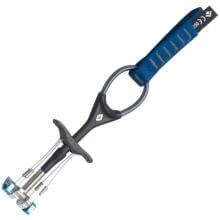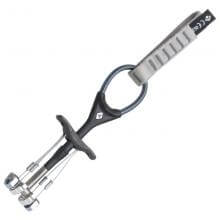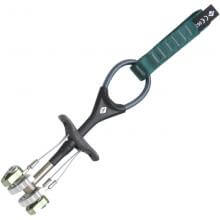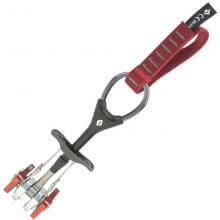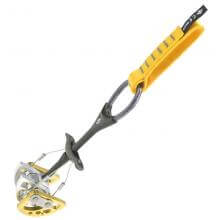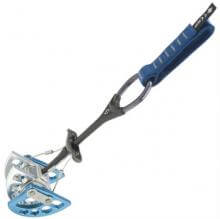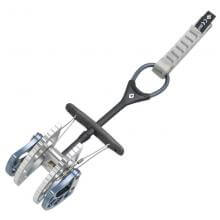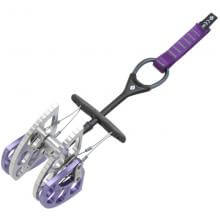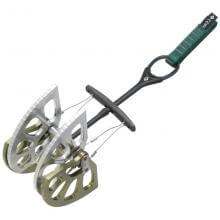Camalot C4 .5 2018
Description
The gold standard for camming units, Black Diamond Camalots' double-axle design allows retraction of larger cam lobes, giving them a much larger expansion range than traditional single-axle units. They are lightweight, the cable loop and trigger are easy to grab, and our patented slings are large enough to manipulate with gloves. Accept no substitutes.
• Double-axle design offers widest range for each cam unit
• C-Loop continuous cable stem design is strong and durable
• Color-coded for easy identification and wide range of sizes
The gold standard for camming units, Black Diamond Camalots' double-axle design allows retraction of larger cam lobes, giving them a much larger expansion range than traditional single-axle units. They are lightweight, the cable loop and trigger are easy to grab, and our patented slings are large enough to manipulate with gloves. Accept no substitutes.
• Double-axle design offers widest range for each cam unit
• C-Loop continuous cable stem design is strong and durable
•...
Retail price
This Product is Hard to Find.
We don’t know where you can buy this item online in the US. We’ll continue to check all the major retailers and will update this page as soon as we find one.
If you know where to find this online in the US, let us know, and we’ll add the link.





Weight (g / oz)  | 99.0 g / 3.49 oz |
| Cam Head | 4 lobes, double axle |
| Offset | No offset |
| Stem | Flexible single stem |
| Sling | Nylon / Polyamide (single sling loop) |
| Camming Angle | |
| Active Strength | 12 kN |
Cam Range (mm / in)  | 19.6 - 33.5 mm (0.77 - 1.32 in) |
| Materials | |
| Certification | CE, UIAA |
The Black Diamond Camalot C4s are tested, tried, and true. I have not had any issues with these spring loaded camming devices. Overtime the lobes wear. The trigger wires are replaceable. You can even aid climb with them. There are lighter cams on the market, but nearly every review I’ve ever seen speaks highly of the these cams.
For many people Black Diamond Camalots are the gold standard for camming units. Their double axle design allows each cam to have a good range, increasing the chances that you'll find a piece that fits on the first try. Camalots used to have the biggest range on the market, but with the advent of Omega Pacific Link Cams and Metolius' Super Cam, Camalots now land about in the middle of the pack. That said, we found that Camalots are one of the best cams we tested to fit into awkward and shallow placements commonly found in granite climbing areas. There's a reason BD Camalots seem to be the most widely used cams in Yosemite.
Chouinard Equipment, which became Black Diamond, began marketing them as Camalots (so-named from various employee suggestions) in fall 1987, and three major updates later, Camalots are still the gold standard for trad climbers. Camalots have easier, smoother trigger action, slot into placements faster, hold better in shallow cracks, and both the metal of the lobes and wires and the nylon of the slings last longer. We do love the flexible stems of Aliens, the narrow heads of Metolius Master Cams, and the groundbreaking innovation of Wild Country Friends, but the C4’s have the best all-around performance and durability. Twenty-seven years after their first appearance, one climber says he’s still “having a love affair with these Batman tools for the vertical world.”
Crack sizes the C4 is designed for range from roughly half an inch to seven and a half inches over the ten different cams, and thanks in part to the double axel design there is a comfortable overlap between adjacent sizes to plug those long even splitter routes.
Camalots have steadily increased their following in the UK since they were redesigned a few years ago. Not a lot of people know this but, internally, a Camalot is a twin-stemmed device. The two sides of the stem are pinched together in the plastic sleeve and swaged into the head to give the handling of a single stem but the weight saving of a double stem. Camalots gain extra range from the double axle, and also by slightly increasing the camming angle of some sizes. In theory this will very slightly reduce holding power but, as Black Diamond point out, these are well tested units that certainly don't make a habit of coming out. Camalots are as lovely to use as they are beautifully built. I consistently got the right size first time, even though I am more used to other units, which is probably the extra range at work. There is precious little to fault and yet, somehow, I often found myself reaching for other units first. The springs felt a little less stiff than many others and the head of the unit just didn't sit quite as rock-steady as I clipped. The difference in holding power is probably negligible to non-existent but it did mean that the single axle units inspired me with a tiny bit more confidence. To cover a range from 19-100mm (actually 19.6-114.7mm) requires 6 units with a total weight of 984g.
The C4 is the backbone of my free climbing rack. They have wider cam lobes than Metolius and Alien cams in the smaller sizes, which means more surface area/friction. They can, however, be problematic in shallow, tapering, or irregular cracks, and they weigh more than the other options. For finger cracks, if I think I am going to fall on a small cam, I want it to be a C4. I have taken whippers on the blue .3 size, and these pieces are solid and confidence-inspiring. In the smaller sizes (0, 00, and 000), the C3 really shines. They are great for aiding thin seams; in fact, some folks successfully aid on these with only two lobes in contact with the rock, but I cannot personally vouch for that. I place small C3s occasionally on free climbs doubled up and equalized where there is no other option. They have a higher strength rating than Metolius cams, but I have never fallen on them. I like the design, but they are not very flexible, and sizes 1 and 2 do not seem to fit as well as the Metolius TCU equivalent.
In our tests, the new Camalots (they were overhauled about a year ago) worked equally well in splitters, bottoming cracks, pods and horizontals. Their syringe trigger was easy to use and the cams could be quickly placed. Camalots are ergonomic. They fit well in the hand and are easier to place than wider U-stem designs. A clever design point allows the stem to rotate in the direction of pull, the only cam to do so, preventing a unit from being torqued sideways even when you clip directly into the stem loop and lean.
From a purely subjective point of view, the Camalots felt solid and stable, and the testing we did, both in the field and on apparatus, bore out our gut instincts. Camalots remain the standard by which newcomers will be judged.
When Craig Luebben assigned Curt Love and me Cloud Tower for the last day of our AMGA Rock Guide Exam, we were psyched. Our first question was, ""Can we borrow your rack of new C4s?"" The weight difference, at 20-percent less, was very noticeable. While the drilled-out camming units themselves reduce weight, they also allow better overall balance. The expanded range per unit enables Black Diamond to remove one size, as well as to increase the size of the largest (number six) unit. Thus paring down our rack, we had no doubt that we could send the route. These will be the first pieces that go on my rack from now on. Same bomber Black Diamond engineering that I trust my life to, but much easier to place with the improved thumb grip and the stem loop that I can clip in short when necessary.
This video is really long but very informative for the Camalots and Camalot C3's users.
Camalots are designed to provide protection across the full spectrum of crack sizes, from small incipient seams, to perfect hands, to full-on offwidths. Camalots, Camalot C3s, Camalot X4s and Camalot Ultralights each have their own unique advantages, and a well-rounded rack will likely contain some or all sizes of each cam. Check out the chart to see how the members of the Camalot family overlap.


